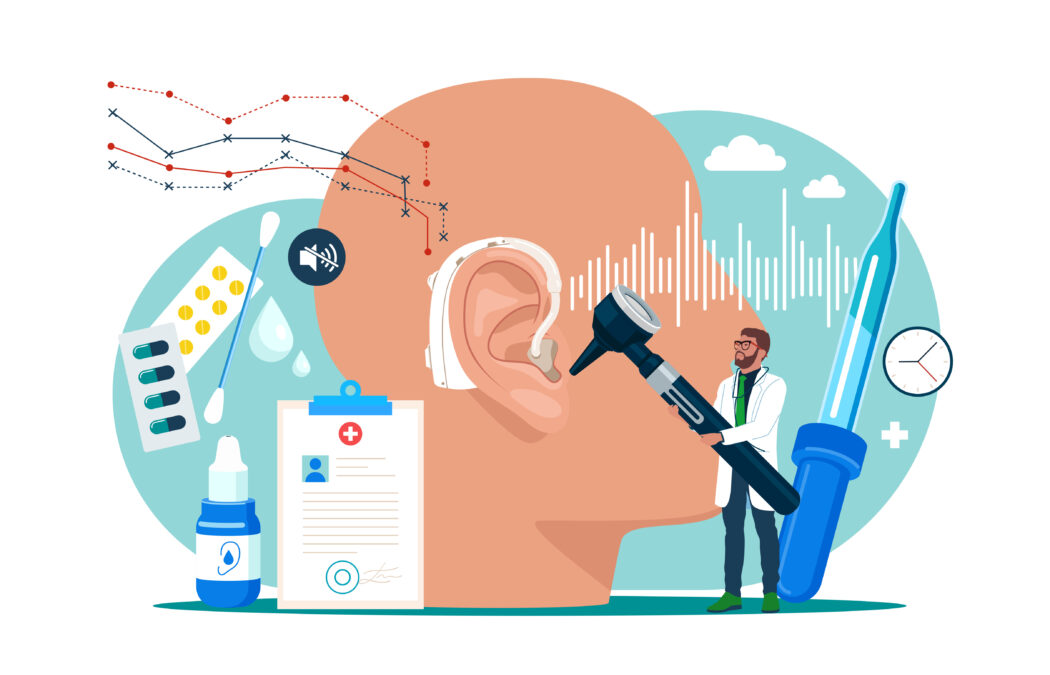Working as a Hearing Aid Specialist involves a variety of tasks and responsibilities. In addition to assessing patients’ hearing needs and selecting and fitting hearing aids, Hearing Aid Specialists also educate patients on the proper use and care of their devices. They may also provide counseling and support to patients and their families on how to cope with hearing loss and communicate effectively.
Hearing Aid Specialists work in a variety of settings, including private practices, audiology clinics, and hearing aid dispensing centers. They may also work in hospitals, rehabilitation centers, or schools for the deaf and hard of hearing.
In terms of specializations, Hearing Aid Specialists may choose to specialize in a particular type of hearing loss, such as pediatric or geriatric hearing loss. They may also specialize in a specific type of hearing aid technology, such as cochlear implants or bone-anchored hearing aids.
Overall, working as a Hearing Aid Specialist requires strong interpersonal and communication skills, as well as a passion for helping others. It is a career that allows individuals to make a positive impact on the lives of others, and those with a strong interest in the Social Theme Code may find it a fulfilling and rewarding career choice.

Learn all about a career as a Hearing Aid Specialist, including career stats such as median salary, daily tasks, required education, employment growth, and more!
Hearing Aid Specialists use audiometric testing equipment, such as audiometers and tympanometers, which are used to assess patients’ hearing abilities. They also use specialized software to analyze test results and create customized hearing aid fittings for patients.
In addition to these tools, Hearing Aid Specialists also use a range of hearing aid devices, including digital hearing aids, cochlear implants, and bone anchored hearing aids. They must be knowledgeable about the latest advancements in hearing aid technology and be able to recommend the best devices for their patients’ needs.
Hearing Aid Specialists also use specialized tools to fit and adjust hearing aids, such as insertion and removal tools, as well as tools for making fine adjustments to the devices. They must also be proficient in using repair and maintenance equipment, such as soldering irons and screwdrivers, to make repairs and perform routine maintenance on hearing aids.
Becoming a Hearing Aid Specialist requires a combination of formal education, clinical training, and ongoing professional development. Most Hearing Aid Specialists have at least a two-year associate degree in audiology or hearing instrument sciences, although some may have a four-year bachelor’s degree.
In addition to formal education, Hearing Aid Specialists must also complete a period of supervised clinical training. This training allows them to gain hands-on experience in assessing patients’ hearing needs, selecting and fitting hearing aids, and providing ongoing support and maintenance.
After completing their education and clinical training, Hearing Aid Specialists must pass a national certification exam to become licensed to practice. This exam tests their knowledge of hearing loss, hearing aid technology, and patient care.
The salary of a Hearing Aid Specialist can vary depending on factors such as location, years of experience, and level of education. On average, Hearing Aid Specialists earn an annual salary of around $50,000 to $60,000.
Hearing Aid Specialists can also increase their salary by advancing in their careers and taking on leadership roles, such as managing a hearing aid clinic or working as a supervisor for other Hearing Aid Specialists. They may also choose to start their own private practice, which can offer the potential for higher earnings. They may also gain additional certifications or licenses, such as those for fitting more advanced hearing aid technology. Another way is to specialize in a particular area of audiology, such as pediatric audiology or cochlear implants.
Below are some employment trends for Hearing Aid Specialists:
- Median Salary: $28.61 hourly, $59,500 annually
- Employment: 11,300 employees
- Projected growth (2021-2031): Much faster than average (11% or higher)
- Projected job openings (2021-2031): 1,000
Visit Our Strong Interest Inventory® Resource Page
Visit Our Myers-Briggs Type Indicator® Career Resource Database for Information on MBTI® Personality Type Careers
To Learn More About the Myers-Briggs Type Indicator, visit our About MBTI Test Page
Gain access to your best-fit careers, occupational preferences and interests with these career based Strong Interest Inventory® Assessments:
-
MBTI® Career Report + Strong & MBTI Combined Career Report + Strong Profile
Price: $96.95 Buy NowDIGITAL DELIVERY
- Three of the top career-focused tests included
- Designed to uncover the best career fit for your true self
- Links to complete assessments are sent digitally via email within 2-3 business hours of purchase
- Results sent in PDF form via email within 6-8 business hours
Download Sample MBTI® Career Report
Download Sample Strong & MBTI® Combined Career Report Plus Strong Profile
Download Sample Strong Interest Inventory® Profile Report
-
Strong Interest Inventory® Interpretive Report
Price: $64.95 Buy NowDIGITAL DELIVERY
- This report starts with the same foundation as the Strong Interest Inventory Profile but goes even further into analyzing your likes and dislikes and how that can help you lead a more fulfilling, satisfied life
- Dive deeper into what your interests, hobbies, favorite topics, and vocations could mean for your career and personal life
- Links to complete assessments are sent digitally via email within 2-3 business hours of purchase
- Results sent in PDF form via email within 6-8 business hours
Download sample Strong Interest Inventory® Interpretive Report
-
Strong Interest Inventory® Profile
Price: $54.95 Buy NowDIGITAL DELIVERY
- Set yourself up for success by choosing a career that reflects your personal interests, preferences, likes, and dislikes
- This test compares your preferences against professionals actively in specified industries, rather than basing results on theory alone
- Links to complete assessments are sent digitally via email within 2-3 business hours of purchase
- Results sent in PDF form via email within 6-8 business hours
-
Strong Interest Inventory® & Skills Confidence Profile + Strong Interpretive Report
Price: $72.95 Buy NowDIGITAL DELIVERY
- Better understand your strengths, interests, preferences, and areas of confidence
- Connect your innate traits to a successful and satisfying career
- Links to complete assessments are sent digitally via email within 2-3 business hours of purchase
- Results sent in PDF form via email within 6-8 business hours
Download sample Strong Interest Inventory® & Skills Confidence Profile + Strong Interpretive Report
-
iStartStrong™ Report
Price: $39.95 Buy NowDIGITAL DELIVERY
- Plan your future career based on your interests and passion
- Start on the right path to finding a career that you’ll enjoy for years to come
- Links to complete assessments are sent digitally via email within 2-3 business hours of purchase
- You will be able to self-download your report as a PDF document immediately following the completion of your assessment.
Explore our Strong Interest Inventory® Blog Pages:
- Strong Interest Inventory Realistic Theme Explained
- Strong Interest Inventory Artistic Theme Explained
- Strong Interest Inventory Investigative Theme Explained
- Strong Interest Inventory Social Theme Explained
- Strong Interest Inventory Enterprising Theme Explained
- Strong Interest Inventory Conventional Theme Explained
Assessment Categories
References
- Bureau of Labor Statistics wage data and 2012-2022 employment projections Onetonline.org














